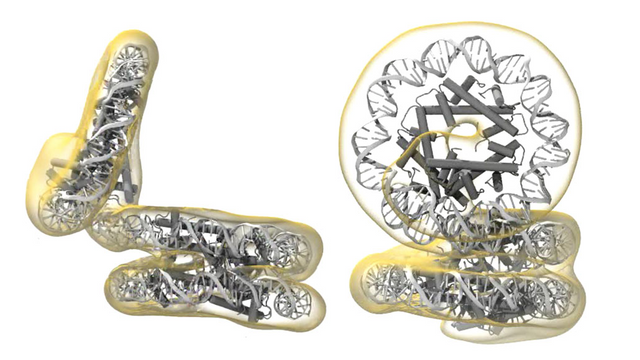
Nature has many different mechanisms of gene editing to create fast evolution. Bacteria share genes by opening their cell walls; viruses edit genes from inside the cell and accelerate genetic mutations when they take over the protein and gene replication machinery - and none of this is random.
Protein folding as shown in the article was used efficaciously by archeons, the predecessors to single cell bacteria; but our fastest supercomputer clusters still can't predict protein folding accurately.
During stable environmental and ecological conditions, the mammalian/marsupial centric global ecosystem is relatively stable, just as the dinosaurs before us had hundreds of millions of years of slow change. This stability comes from interaction of millions of different species' genomes, meaning it is far too complex for us to observe or calculate, let alone manipulate safely.
Any gene addition, subtraction or modification we may undertake may be impossible under the existing stabilizing forces for rules we will probably never discover, given the short amount of time until the heat death of the Universe and the limited number of particles in the Universe relative to the number of interactive permutations.
Nature has been running septillions of genetic mutation experiments per second for the last 3.5 billion years, and we don't know how many times the system crashed before stability evolved. Total human conscious experience will never equal more than a microsecond of this knowledge.